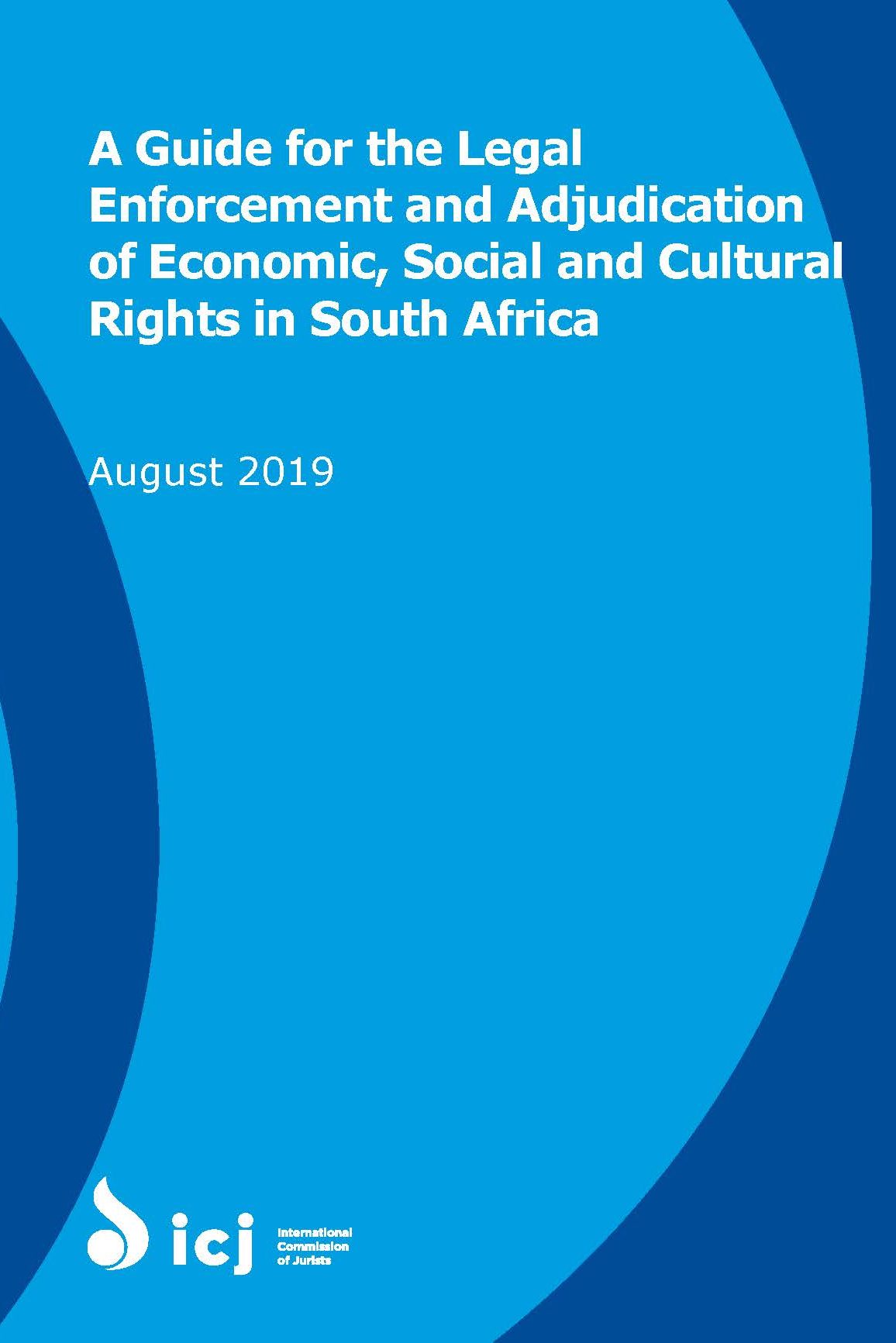The purpose of the new ICJ Guide on the Enforcement and Adjudication of Economic, Social and Cultural Rights (ESCR) in South Africa is to act as a resource to legal practitioners and human rights defenders on both South African constitutional standards and international human rights law standards on ESCR.
The Guide may also be useful to international human rights practitioners and domestic and international practitioners in other jurisdictions.
ICJ Commissioner Jamesina King, who formally launched the guide at Constitutional Hill in South Africa said:
“As an advocate for the protection of human rights defenders, as a member of the quasi-judicial African Commission on Human and Peoples’ Rights, and as a sitting judge in my home country Sierra Leone I am passionate about the role of such commissions, tribunals and forums in ensuring access to justice for abuses and violations of ESCR. In my view, international human rights law rightly recognizes that a right (and a corresponding obligation) without an effective remedy is not a meaningful right at all.”
While, to some extent, South African law does reflect international human rights law standards on ESCR, the specifics of international standards are practically useful to South African practitioners and human rights defenders.
The Guide can be used by judges, magistrates, advocates, lawyers, governmental administrators, legal advisors, paralegals, legal researchers, human rights defenders and academics.
Additionally, the Guide should be useful to international human rights practitioners and domestic and international practitioners in other jurisdictions.
Basing its analysis of ESCR in the present South African context, the Guide may also assist the South African government in evaluating South Africa’s compliance with its international human rights obligations. This is especially important given the UN Committee on Economic, Social and Cultural Rights concluding observations to South Africa issued in October 2018.
In summary, the Guide comprehensively details the following:
- How and why international human rights law must be considered in the interpretation of the South African Constitution;
- What the meaning of certain key operational provisions relating to ESCR are which are common to domestic, regional and international instruments. Such provisions include detail explanations of the meanings of:
- “progressive realization” and “immediate realization”;
- the “minimum core” obligations of states;
- “reasonableness” as an evaluation standard for rights violations; and
- the broader meaning of “available resources” both as positive budgetary obligation and a potential state defense for failing to secure ESCR.
- The implications of the need for equality and non-discrimination in access to ESCR, using examples of, in particular;
- Gendered ESCR needs and rights;
- Disability-conscious understandings of ESCR; and
- ESCR protections as specified to the circumstances of LGBTIQ persons.
- The application of ESCR obligations to “private”, “non-state” entities including but not limited to businesses.
- The remedies that are available to victims of ESCR violations on a domestic, regional and international level.
The Guide includes references to African and international standards throughout, weaving them into the sophisticated jurisprudence and body of knowledge developed in the South African context. It aims to add some value to the already large body of excellent publications on ESCR in South Africa.
Download
South Africa-Guide ESCR-Publications-Thematic Report-2019-ENG

